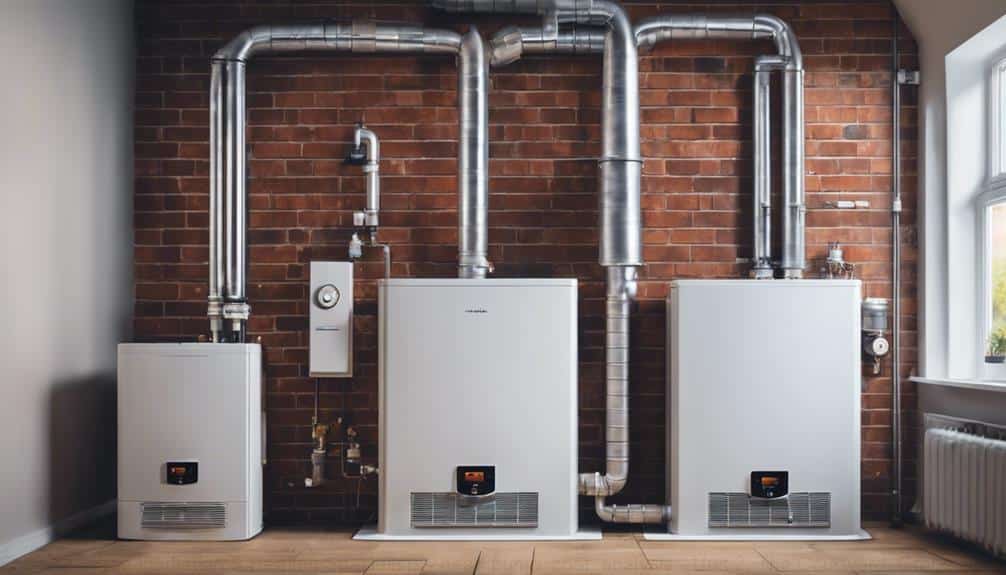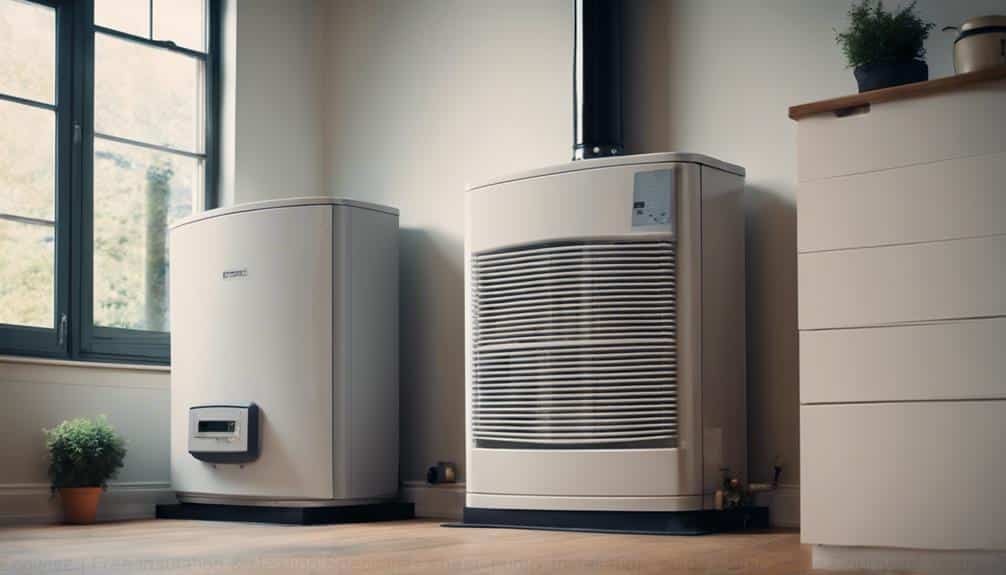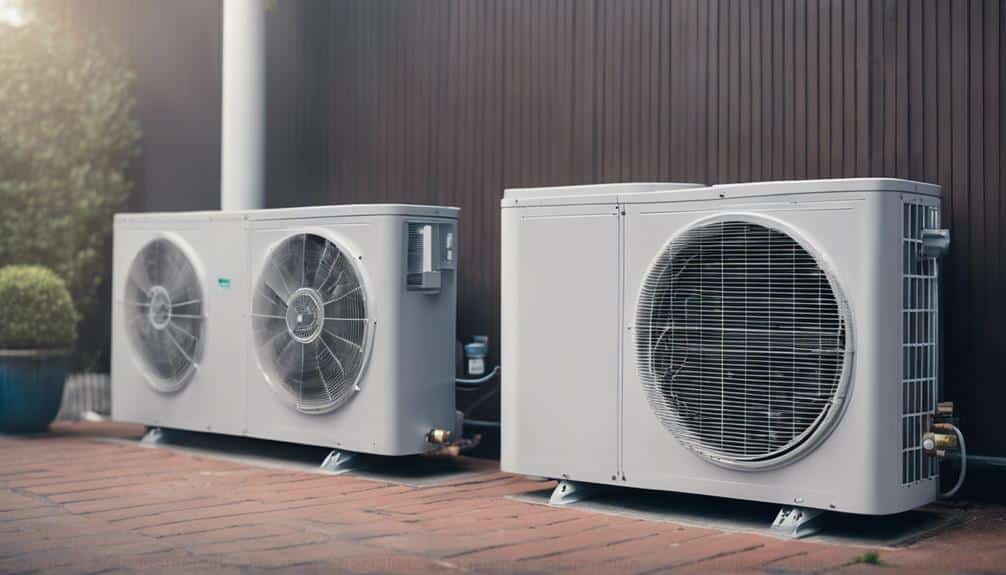When evaluating heat pump efficiency and costs in the UK, it is crucial to consider energy savings and long-term benefits across various heat pump types. Factors such as efficiency ratings, heating demand, and property insulation significantly impact running costs. Proper installation location, sizing, and integration with existing systems are essential for cost-effectiveness.
Ground source heat pumps provide consistent temperatures, sustainable heating, and substantial cost savings. Consumers can explore additional services, benefits of solar panels, and energy-saving tips to maximize efficiency and reduce expenses. Understanding these aspects can facilitate informed decisions for efficient heating solutions in the UK.
Table of Contents
ToggleCost Analysis of Heat Pump Efficiency

In the UK, evaluating the cost-effectiveness of heat pump efficiency requires a detailed analysis of running costs and comparative energy expenses. Air source heat pumps, with an average efficiency rate of around 300%, offer potential energy savings compared to traditional heating systems.
Despite electricity being more expensive than gas in the UK, the high efficiency of air source heat pumps can result in significant energy savings. Factors such as heating demand, household insulation, and property optimization play a crucial role in determining the running costs of heat pumps.
Understanding these dynamics enables consumers to make informed decisions about the cost analysis of heat pump efficiency and maximize the benefits of this sustainable heating solution.
Factors Affecting Heat Pump Running Costs
Efficiency in heat pump operation is influenced by factors like efficiency ratings, heating demand, household insulation, property insulation, and room optimization.
Users can lower running costs by implementing energy-saving tips and utilizing renewable energy sources like solar panels with heat pumps.
Understanding ground-source heat pumps can provide cost-effective heating solutions, benefiting from Earth's thermal energy for consistent temperatures.
Installation Considerations for Heat Pumps

Installation of heat pumps requires attention to key factors affecting efficiency and cost-effectiveness. Address challenges like suitable location, proper sizing, and integration with existing systems.
Adhere to energy efficiency regulations for peak performance and compliance. Consider noise levels, environmental impact, and efficiency ratings during installation.
Choose qualified professionals to ensure efficient operation. Proper installation maximizes benefits and long-term savings.
Benefits of Ground Source Heat Pumps
Ground source heat pumps offer several advantages:
- Harnessing geothermal energy for consistent temperatures
- Contributing to sustainable heating solutions
- Providing long-term cost savings
These pumps are known for their efficiency and reliability, making them a popular choice for those seeking renewable heating technologies.
Additional Services and Information for Consumers

Consumers benefit from a range of services and information offered by ground source heat pump companies. These include details on solar panel benefits, energy-saving tips, and breakdowns of expenses for central heating installations.
Additionally, companies promote energy efficiency by offering deals on solar panels and battery storage. Consumers can access company information, contact details, and reviews to make informed decisions when purchasing boilers.
Trusted services ensure reliability and quality for hybrid heat pump installations, endorsed by Which? Trusted Traders.
Frequently Asked Questions
Are There Government Incentives Available for Heat Pump Installations in the Uk?
Government incentives are available in the UK for heat pump installations. These incentives promote cost savings for consumers and reduce the environmental impact of heating systems, encouraging the adoption of sustainable and efficient technologies.
What Maintenance Do Heat Pumps Require for Optimal Efficiency?
Regular maintenance and filter replacements are crucial for maintaining peak efficiency in heat pumps. These tasks ensure smooth operation, enhance energy efficiency, and extend the equipment's lifespan, reducing the frequency of costly repairs.
Can Heat Pumps Be Integrated With Existing Heating Systems?
Evaluation of retrofitting heat pumps with existing heating systems involves assessing feasibility and potential energy savings. Key considerations include performance comparison, compatibility, efficiency gains, and installation requirements. Ensuring a seamless integration for improved heating efficiency requires thorough evaluation of these factors.
How Do Heat Pump Warranties Compare to Traditional Boilers?
Heat pump warranties typically provide longer coverage compared to traditional boilers, showcasing manufacturers' confidence in the product's durability and reliability. This extended protection, along with potential cost savings and energy efficiency, makes heat pumps a compelling option.
Is There a Difference in Noise Levels Between Air Source and Ground Source Heat Pumps?
Comparison of noise levels between air source and ground source heat pumps should consider installation factors. Understanding the decibel output of each system is crucial for informed decision-making in residential settings.



